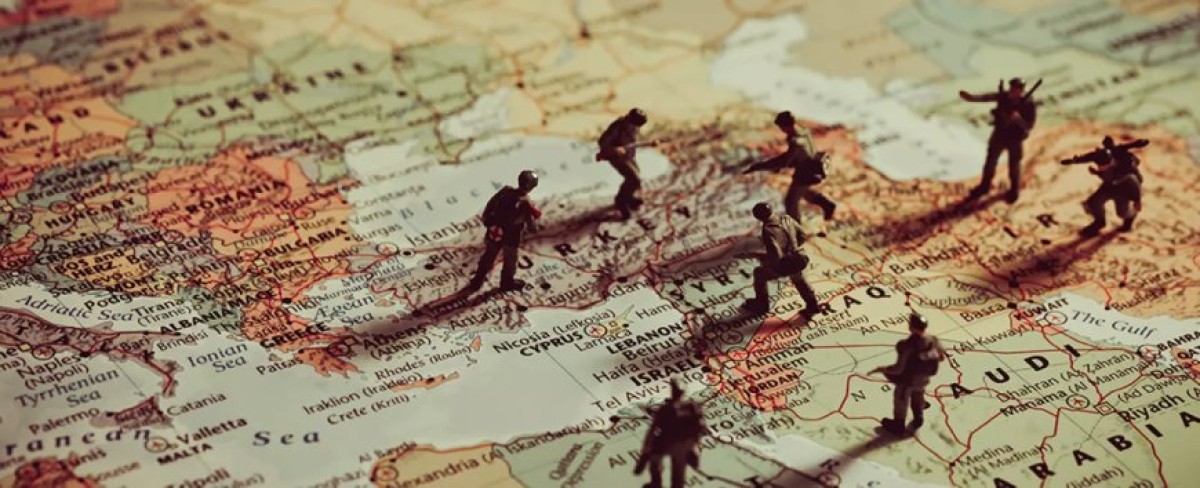 3777
3777
The Escalating Crisis in the Middle East: A Call for Prudence and Diplomacy
The Escalating Crisis in the Middle East: A Call for Prudence and Diplomacy
By: A. Mahdavi
In the wake of events following October 7, the Middle East finds itself engulfed in a heightened state of military and political antagonism. The developments at play, particularly those instigated by Israel, carry the ominous potential to escalate into a catastrophic scenario with far-reaching implications for the entire world. In a bid to save its face, Israel has embarked on a series of aggressive maneuvers, flagrantly violating international laws and conventions, banking on a sense of impunity derived from past instances. However, this time around, the Islamic Republic of Iran has shifted from a stance of strategic patience to one of active deterrence, unsettling Tel Aviv’s strategic calculations for future actions.
As a matter of fact, the rising tensions in the region appear inextricably linked with the Israeli war on Gaza. Israel's attribution of blame to Iran as the orchestrator of Operation Al-Aqsa Storm reflects a concerted effort to drag the Islamic Republic into a full-fledged confrontation, leveraging its position bolstered by unwavering Western support. Yet, Israel’s warmongering approach is setting in motion a dangerous chain of events, the mismanagement of which could potentially spiral the Middle East into a cauldron of wars—an outcome no one but Netanyahu welcomes.
In the meantime, a critical analysis of the positions adopted by the Western powers—most notably by the US, the UK, and France—reveals an alarming pattern of opportunistic posturing. These governments, oblivious to Israel's egregious atrocities in Gaza, are now compelled to proactively engage through diplomatic channels to avert the looming specter of global conflict. The excessive support for Israel has given the Israeli state the confidence to act without restraint and transgress all red lines.
Conversely, the rational stance adopted by Beijing and Moscow emerges as a beacon of reason amidst the escalating tensions. Chinese officials, cognizant of the underlying causes of instability in the region, have asserted that a cessation of hostilities in Gaza could pave the way for a de-escalation of violence across the broader Middle East. They have called for immediate action to put the UN Security Council's ceasefire resolution into effect in order to help resolve the current precarious situation.
Amidst the widespread calls for restraint and de-escalation, it becomes evident that mere rhetoric devoid of substantive pressure on Israel is unlikely to yield tangible results. The Western powers, complicit in their support of Israeli aggressions, must reckon with the repercussions of their diplomatic inaction. By condoning Israel's systematic war crimes across the region, including the recent attack on the Iranian consulate in Damascus, and reflexively condemning Iran for its missile strikes against Israel’s military targets, the West risks embroiling itself—and the global community—in a perilous trajectory. The blind allegiance to Israel amidst its everyday carnage in Gaza not only tarnishes the moral reputation of the West but also underscores a stark prioritization of political expediency over human lives.
Ironically, the enduring support extended to Israel by Western governments, particularly against the backdrop of the ongoing humanitarian catastrophe in Gaza, threatens to unravel the socio-economic fabric of Western societies. As the ugly nature of Israel's actions comes to light, western societies become increasingly aware of the depths of Zionists’ brutality, portending potential backlash against pro-Israel politicians in the long run. Moreover, global public opinion, no longer swayed by Western narratives, scrutinizes the unfolding events through diverse media platforms, thereby widening the social and political chasm between themselves and their governments.
In summation, the imperative for the global community lies in actively managing Israeli madness through a multifaceted approach, buttressed by unequivocal support for ending the massacre of civilians in the Gaza Strip. By averting the specter of a military conflagration with untold consequences, the world can navigate the prevailing crisis with prudence and foresight, thereby safeguarding the interests of all nations.
 3777
3777
Comment
Post a comment for this article